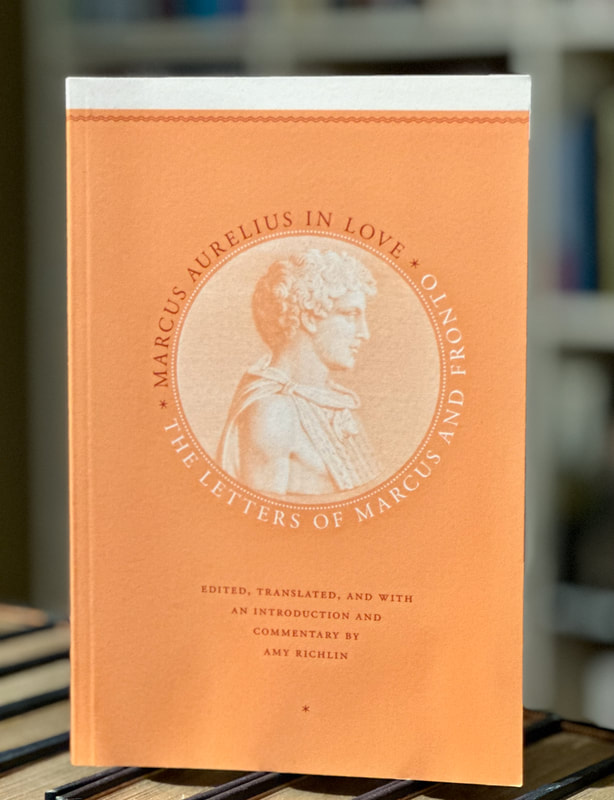REVIEW | Marcus Aurelius in Love2/13/2024
REVIEW | Marcus Aurelius in Love
MARCUS AURELIUS IN LOVE: The Letters of Marcus And Fronto | Translated & edited by Amy Richlin, The Univesity of Chicago (2006) p168.
Marcus Aurelius in Love: The Letters of Marcus and Fronto" offers a fascinating glimpse into the personal life of one of history's most esteemed philosophers, Marcus Aurelius, through a collection of correspondence with his tutor and friend, Fronto. This edition, expertly edited and translated by Amy Richlin, provides a translation of these ancient texts and a comprehensive analysis that adds depth and context to the letters exchanged between these two Roman figures. Amy Richlin's translation skillfully captures the nuances of the original Latin, making the letters accessible to a modern audience while preserving their historical and linguistic integrity. Richlin's ability to convey the emotional depth and intellectual exchange between Marcus Aurelius and Fronto is particularly noteworthy, as it highlights the human side of the Stoic emperor and his relationship with his mentor. The letters are a treasure trove of emotion, philosophical reflection, and rhetorical finesse. They reveal a side of Marcus Aurelius that is seldom seen in his more famous work, "Meditations." Through these letters, readers witness the development of a deep and enduring friendship characterized by mutual respect, intellectual exchange, and genuine affection. The correspondence covers various topics, from personal health and family matters to philosophical discussions and literary critiques, offering a comprehensive picture of their relationship. Readers might be shocked - as I was - to read of Aurelius complaining of an “anxious heart, shackled by worry.” Or when he is about to experience something he longed for - return to Italy - he is nearly goofy and describes his conduct as “giddy.” Reviving this lesser-known collection of Aurelius’ writings helps round out the image of a genuinely human man of action wrestling to align his conduct with his stated moral objectives. Moreover, Richlin's introduction and commentary throughout the book are invaluable for understanding the historical and cultural context of the Roman Empire during the 2nd century. She provides detailed backgrounds on both correspondents, shedding light on their personal lives, roles within Roman society, and the philosophical and rhetorical themes pervading their letters. This context enriches the reader's appreciation of the correspondence, offering insights into the period’s education, politics, and daily life. In conclusion, this edition is a remarkable achievement that combines scholarly rigor with engaging storytelling. Amy Richlin has not only provided an accessible translation of these important historical documents but has also illuminated the complex relationship between two significant figures of the Roman Empire. Her contributions make "Marcus Aurelius in Love" an essential read for those interested in ancient history, philosophy, and the art of letter writing. Comments are closed.
|
NEWSLETTER SIGNUP
Categories |

 RSS Feed
RSS Feed